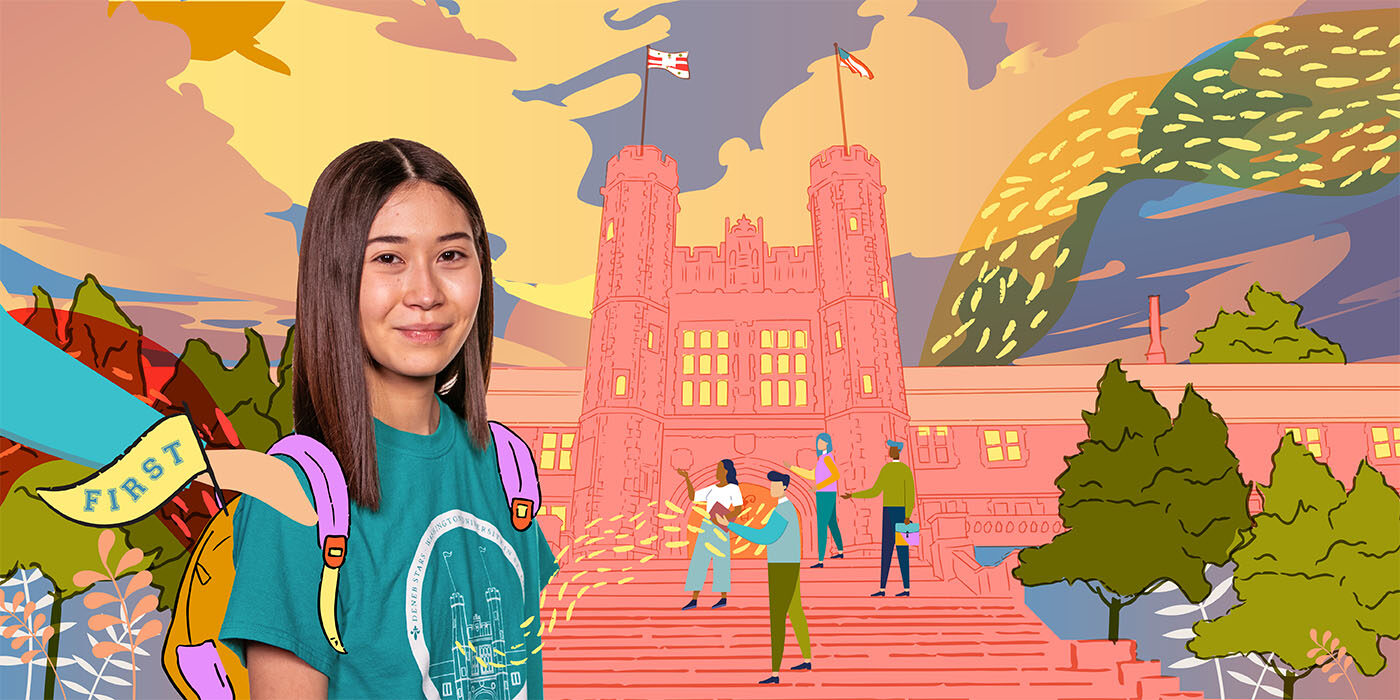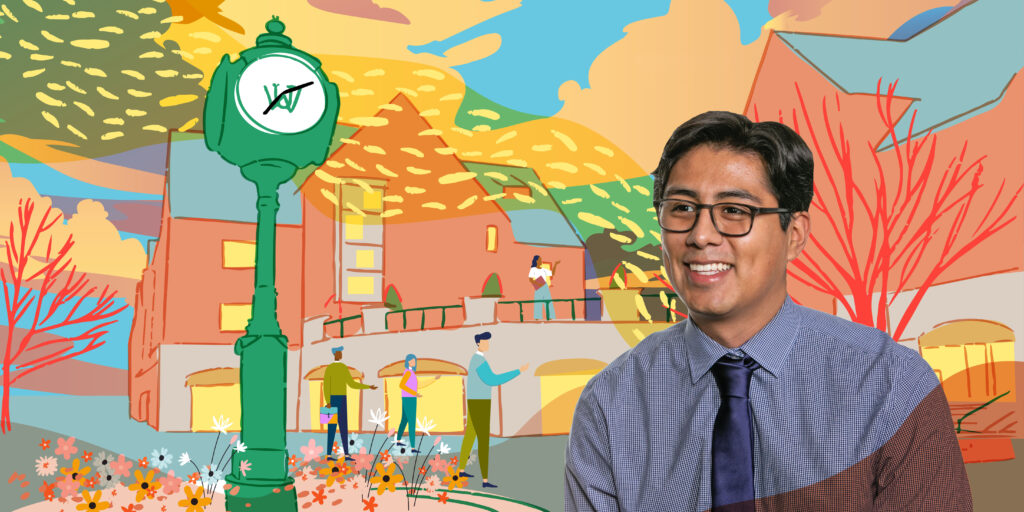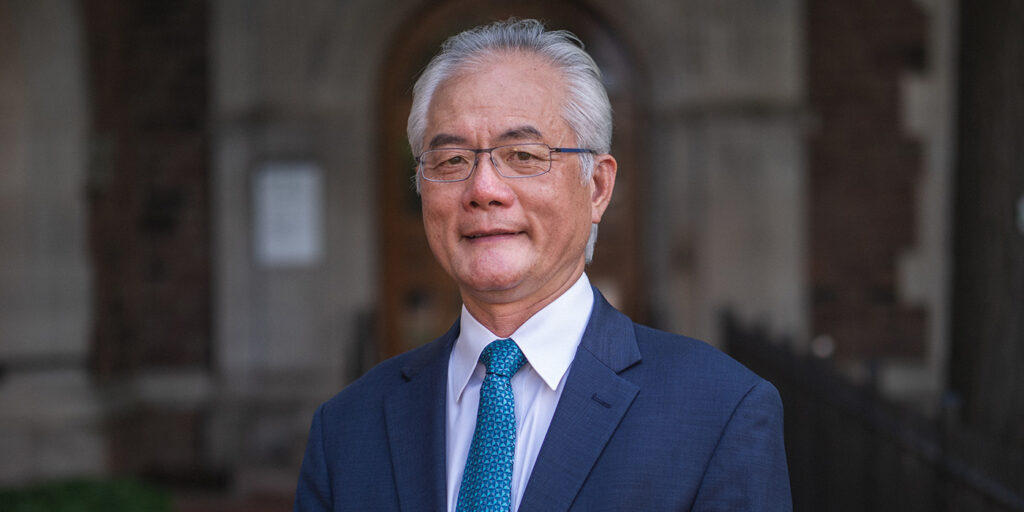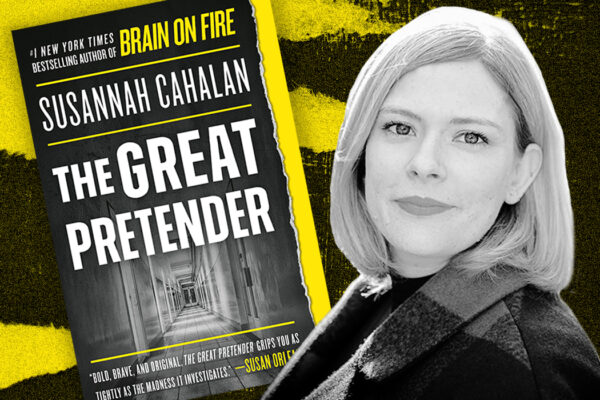It’s the first day of the spring semester and sophomore Megan Matlock is wearing her Deneb STARS T-shirt, the one that reads, “Prepare, Pursue, Persist.”
“I always wear my Deneb’s shirt on the first day,” says Matlock, referring to the cohort program for low-income and first-generation students. “It’s my way of raising the visibility of first-gen students on campus and letting other first-gens know they are not alone.”
Indeed, they are not, at least not anymore. Today, some 600 undergraduate students, including 11 percent of the Class of 2024, are the first in their family to attend college. That’s more than double the amount in 2015, the year then-Chancellor Mark S. Wrighton unveiled an ambitious plan to recruit and support — financially, academically and socially — more low-income and first-generation students.
“Our success as a university — indeed our success as a nation — depends on our ability to educate bright young students to address the world’s greatest challenges,” Wrighton said at the time.
Since then, it’s been all hands on deck. University Advancement raised a record-shattering $591 million for new scholarships. Undergraduate Admissions waived application fees, dispatched recruiters to under-resourced high schools and formed new partnerships with QuestBridge, KIPP to College and college access organizations. And Student Financial Services launched new aid and grant initiatives to bolster the university’s no-loan policy for students whose families earn less than $75,000 annually. This academic year, SFS provided almost $12 million in aid to first-year, first-generation students.
Meanwhile faculty, staff and students took a hard look at their programs and broke down the barriers that stood between first-generation and low-income students and a true Washington University experience. Schools improved advising, clubs eliminated fees and professors stopped assuming every student could afford expensive lab supplies and engineering tools.
And the university also launched the Office for Student Success, home of the Deneb STARS Program, and renewed its commitment to TRIO, the federally funded program that serves some 200 low-income students and first-generation students as well as students with disabilities.
Chancellor Andrew D. Martin has built on the university’s momentum since his arrival in 2019, creating the WashU Pledge, which provides admitted low-income students from Missouri and southern Illinois a free Washington University education, and directing the university to move towards need-blind admissions.
“Our first-gen students have done the hard work to get here. We owe it to them to do the hard work to make WashU a place where students of all backgrounds can thrive.”
Chancellor Andrew D. Martin
And this semester, Martin launched the Chancellor’s Career Fellows Program, which provides low-income and first-generation students career coaching and up to a $5,000 stipend for an unpaid or underpaid internship.
Of course, not all low-income students are first-generation, and not all-first generation students are low-income. But there is significant overlap, and even first-generation students of means need support navigating college and building professional networks.
“It’s not enough to admit more first-generation students or provide more aid or expand academic and professional opportunities,” Martin says. “We need to do all of the above. Our first-gen students have done the hard work to get here. We owe it to them to do the hard work to make WashU a place where students of all backgrounds can thrive.”
‘We know what it took to get here’
Growing up in Bonne Terre, Missouri, an hour south of St. Louis, Matlock had heard two things about Washington University: It was really good and it was super expensive. But a trip to campus gave her a fuller picture. She noticed the tour guide saying hi to nearly everyone who passed, the students studying together in the Quad, the campus bulletin boards covered in flyers for performances, parties and lectures.
“The biggest surprise was when I visited the anthro professors,” recalls Matlock, who is interested in non-human primates and is majoring in anthropology in Arts & Sciences. “They were so interested in learning about us even though we were just in high school. That showed me that they really cared.”
Matlock applied via QuestBridge, a scholarship program that matches talented first-generation and low-income students to some of the nation’s best colleges and universities. A new QuestBridge partner, Washington University had committed to fully fund 30 QuestBridge scholars in 2019. This year, Washington University will welcome 60 QuestBridge scholars.
On campus Matlock experienced a culture shock familiar to first-generation students at elite universities. Many of her new friends wore luxury labels, enjoyed meals out and Ubered everywhere.
“I would get invited to the Loop, but I had to watch my money,” says Matlock, who had spent the previous summer mowing lawns and doing odd chores for her neighbors. “You can only say no so many times before it starts to feel awkward.”
But that awkwardness never mutated into isolation. As a Deneb STAR (Deneb for the farthest star visible to the naked eye and STAR for Sustaining Talented and Academically Recognized Students), Matlock made friends at study sessions, pizza parties and programs featuring speakers from the Career Center, the Teaching and Learning Center, the Skandalaris Center and other campus resources. The program, now 660 students strong, is open to all first-generation and low-income students.
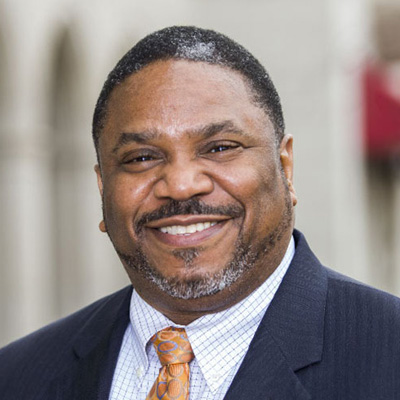
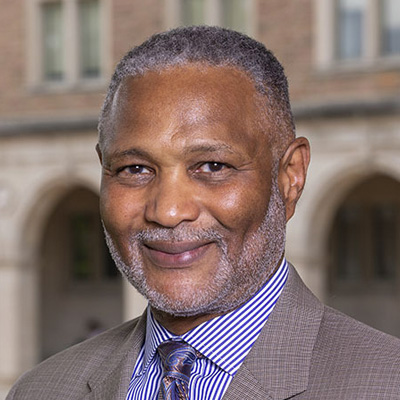
“We all connected so quickly,” Matlock says. “I knew I could always find a Deneb who could understand whatever situation I was going through. As Denebs, we are always looking out for each other and building each other up because we know what it took to get here.”
Anthony Tillman, assistant provost for student success, calls that cultural wealth — the strength that comes not in spite of obstacles, but because of them.
“I tell students don’t be ashamed of your financial status — it’s temporary. And don’t be resentful. Those students with the nice cars and nice clothes have about as much control of their financial status as you have over yours,” says Tillman, himself a first-generation student. “Rather, be proud of your history and your identity. They’ve made you who you are today.”
Tillman remembers that day six years ago when he and Harvey Fields, associate dean for student success and the first member of his family to graduate from college, stood before a blank white board and started scribbling their to-do list: provide academic tutoring and peer mentoring, create a fund for students who need to see a sick relative or register for the MCAT, strengthen the pipeline into STEM fields, connect students to meaningful work-study and professional opportunities, build partnerships with academic departments and Habif Health and Wellness.
“The list went on and on,” Tillman says. “It was overwhelming because there were so many things we wanted to do, but here we are. Our work isn’t finished yet, but I’m proud to see our students thriving, leading on campus and making their voices heard.”
‘We need to double-down on our efforts.’
Washington University made these changes because, to be frank, it had to. More and more, the public is demanding that institutions of higher education serve the broader society, not just perpetuate a class system that exacerbates inequality and stifles innovation.
But another factor is at play. University leaders are committed to serving first-generation students because many of them were first-generation students. Among them: Beverly Wendland, provost and executive vice chancellor for academic affairs, Feng Sheng Hu, dean of the faculty of Arts & Sciences; Mark Taylor, dean of Olin Business School and Mary McKay, dean of the Brown School, as well as several vice chancellors, provosts and deans. You can find their names and 100 more in the First-Generation Faculty and Staff Directory, a resource created by Kim Morton, director of TRIO Student Support Services.
Wendland has made first-generation students an early priority and has convened a task force to make the university “best in class” in its support for first-generation students. The group is studying ways to better connect students to internships, undergraduate research, study abroad and other meaningful experiences to ensure they fully engage, thrive and prosper at Washington University.
“WashU has come a long way in a short amount of time, but we need to double-down on our efforts,” Wendland said. “We will achieve success only when all of our students can access all of our academic and research opportunities to realize their full potential.”
‘Our why is rooted in finding solutions’
Matlock has built strong relationships with both of her advisers — four-year adviser Liz Gilmore, assistant dean in Arts & Sciences; and Krista Milich, assistant professor of biological anthropology in Arts & Sciences. Both are first-generation.
At their first meeting, Gilmore and Matlock swapped stories about growing up in their respective small towns and strategies for balancing class with co-curriculars. Gilmore also advised Matlock to attend professor hours when she needed help, and when she didn’t. That’s advice Matlock has passed on to first-year Denebs.
“Some first-generation students are less likely to go to office hours because they mistakenly believe, if they need help then maybe they shouldn’t be here in the first place,” Gilmore says. “Or they’re intimidated to go to office hours because they think they’re bothering their professors. And that’s not true. Professors want to build those connections; that’s why they are here.”
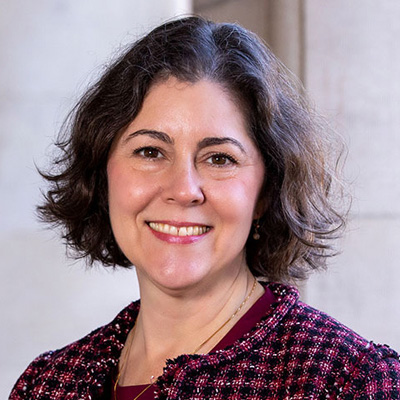
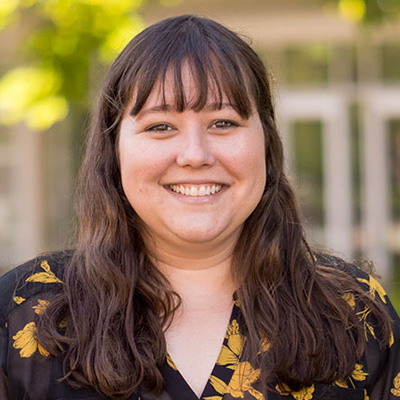
So when Milich mentioned that she was first-generation to students in her class, “The Pandemic: Science and Society,” Matlock reached out. Now Milich is her major adviser.
In addition to academic advising, Matlock is receiving professional advising through the Chancellor’s Career Fellows Program, a new initiative for first-generation and low-income first-year students and sophomores. Fellows are enrolled in a one-credit class where they receive personalized career planning and coaching. Students also will receive a stipend of up to $5,000 for unpaid or underpaid summer internships.
“First-generation students don’t always have a network of family and friends who can hook them up with internships,” Martin says. “Career Fellows will gain the skills and receive the support they need to find meaningful internships that will advance their education and their careers.”
“Whatever I end up doing, it has to be something where I’m helping people and making an impact.”
Megan Matlock, class of 2023
In the upcoming weeks, Matlock will learn tangible skills like interviewing techniques and ways to connect to university alumni in their field. But on this day, instructor Michelle DeLair, assistant director at the Career Center, asks the fellows to consider their “why.”
“It wasn’t about identifying our career goals, since a lot of us don’t have that figured out yet, but what is propelling us, what is behind our passions,” Matlock says. “For me, it’s the desire to give back. Whatever I end up doing, it has to be something where I’m helping people and making an impact, even if that impact takes years to manifest.”
In her breakout group, Matlock met students from different parts of the country, studying different disciplines at different schools. Yet many shared the same why.
“Because a lot of us grew up in similar backgrounds where resources are scarce, we’ve seen how disparities impact our neighbors and our communities,” Matlock says. “Our why is rooted in finding solutions to that reality. That’s what’s pushing us.”
Diane Toroian Keaggy, AB ’90, is senior news director of campus life.
